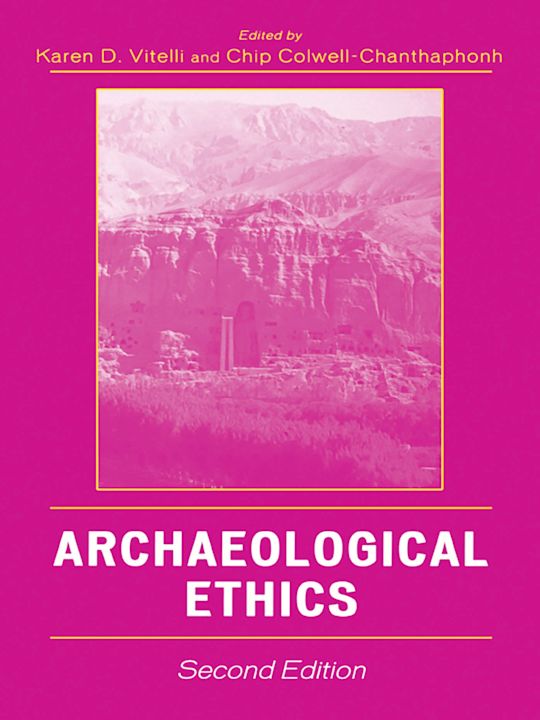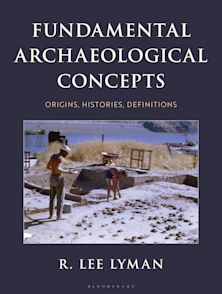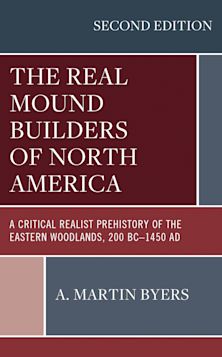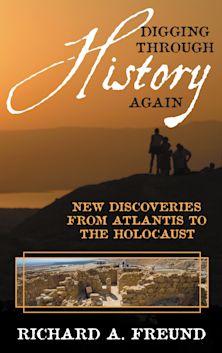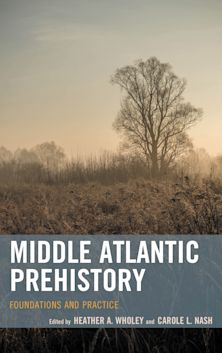- Home
- ACADEMIC
- Archaeology
- Archaeology - Other
- Archaeological Ethics
Archaeological Ethics
Karen D. Vitelli (Anthology Editor) , Chip Colwell-Chanthaphonh (Anthology Editor) , Roger Atwood (Contributor) , Michael Bawya (Contributor) , Maria Braden (Contributor) , Michel Brent (Contributor) , Kathleen Bryant (Contributor) , Arlen F. Chase (Contributor) , Diane Z. Chase (Contributor) , Andrew Curry (Contributor) , James P. Delgado (Contributor) , Blake Edgar (Contributor) , Stacey O. Espenlaub (Contributor) , Brian Fagan (Contributor) , Micah Garen (Contributor) , Juliet Golden (Contributor) , Yuval Goren (Contributor) , Julie Hollowell (Contributor) , Jarrett Lobell (Contributor) , Roderick J. McIntosh (Contributor) , Susan Keech McIntosh (Contributor) , Clement W. Meighan (Contributor) , Mark Michel (Contributor) , Janet Monge (Contributor) , George Nicholas (Contributor) , Robert W. Preucel (Contributor) , David Price (Contributor) , Marilyn Raschka (Contributor) , Elaine Robbins (Contributor) , Kristin M. Romey (Contributor) , Neil Asher Silberman (Contributor) , Tereba Togola (Contributor) , Harriot W. Topsey (Contributor) , Joe Watkins (Contributor) , Lucy F. Williams (Contributor)
- Textbook
Archaeological Ethics
Karen D. Vitelli (Anthology Editor) , Chip Colwell-Chanthaphonh (Anthology Editor) , Roger Atwood (Contributor) , Michael Bawya (Contributor) , Maria Braden (Contributor) , Michel Brent (Contributor) , Kathleen Bryant (Contributor) , Arlen F. Chase (Contributor) , Diane Z. Chase (Contributor) , Andrew Curry (Contributor) , James P. Delgado (Contributor) , Blake Edgar (Contributor) , Stacey O. Espenlaub (Contributor) , Brian Fagan (Contributor) , Micah Garen (Contributor) , Juliet Golden (Contributor) , Yuval Goren (Contributor) , Julie Hollowell (Contributor) , Jarrett Lobell (Contributor) , Roderick J. McIntosh (Contributor) , Susan Keech McIntosh (Contributor) , Clement W. Meighan (Contributor) , Mark Michel (Contributor) , Janet Monge (Contributor) , George Nicholas (Contributor) , Robert W. Preucel (Contributor) , David Price (Contributor) , Marilyn Raschka (Contributor) , Elaine Robbins (Contributor) , Kristin M. Romey (Contributor) , Neil Asher Silberman (Contributor) , Tereba Togola (Contributor) , Harriot W. Topsey (Contributor) , Joe Watkins (Contributor) , Lucy F. Williams (Contributor)
- Textbook
Exam copy added to basket
Choose your preferred format. Please note ebook exam copies are fulfilled by VitalSource™.
Buy from Bloomsbury eTextBooks
You are now leaving the Bloomsbury Publishing website. Your eBook purchase will be with our partner https://www.vitalsource.com.
Your credit card statement will show this purchase originating from VitalSource Technologies. They will also provide any technical assistance you might require.
You must sign in to add this item to your wishlist. Please sign in or create an account
Description
The second edition of Archaeological Ethics is an invitation to an ongoing and lively discussion on ethics. In addition to topics such as looting, reburial and repatriation, relations with native peoples, and professional conduct, Vitelli and Colwell-Chanthaphonh have responded to current events and news stories. Twenty-one new articles expand this ongoing discussion into the realm of intellectual property, public outreach, archaeotourism, academic freedom, archaeological concerns in times of war, and conflicting values. These compelling articles, from Archaeology Magazine, American Archaeology, and Expedition are written for a general audience and provide a fascinating introduction to the issues faced every day in archaeological practice. The article summaries, discussion and research questions, and suggestions for further reading_particularly helpful given the vast increase in related literature over the last decade_serve as excellent teaching aids and make this volume ideal for classroom use.
Table of Contents
Part 2 Part I: Who Owns the Past?
Chapter 3 Chapter 1: Archaeology and the Ethics of Collecting
Chapter 4 Chapter 2: Trafficking in Treasures
Chapter 5 Chapter 3: Guardians of the Dead
Chapter 6 Chapter 4: The World Wide Web of Antiquities
Chapter 7 Chapter 5: Faking Biblical History
Chapter 8 Chapter 6: Anasazi in the Backyard
Chapter 9 Chapter 7: Celebrating Twenty-Five Years of Preservation
Part 10 Part II: Archaeology and (Inter)National Politics
Chapter 11 Chapter 8: The Race to Save Afghan Culture
Chapter 12 Chapter 9: The War Within the War
Chapter 13 Chapter 10: Beirut Digs Out
Chapter 14 Chapter 11: Flashpoint Ayodhya
Chapter 15 Chapter 12: Cloak and Trowel
Part 16 Part III: Affected Peoples
Chapter 17 Chapter 13: People Without History
Chapter 18 Chapter 14: When Artifacts are Commodities
Chapter 19 Chapter 15: The Rape of Mali
Chapter 20 Chapter 16: Archaeotourism
Part 21 Part IV: Reburial, Repatriation, and Representation
Chapter 22 Chapter 17: Burying American Archaeology or Sharing Control of the Past-Burying American Archaeology; Sharing Control of the Past
Chapter 23 Chapter 18: Banned Books
Chapter 24 Chapter 19: Out of Heaviness, Enlightenment
Chapter 25 Chapter 20: Remembering Chelmno
Chapter 26 Chapter 21: The New Acropolis Museum
Part 27 Part V: The Professional Archaeologist
Chapter 28 Chapter 22: Archaeology's Dirty Secret
Chapter 29 Chapter 23: Intellectual Property Issues in Archaeology?
Chapter 30 Chapter 24: Lure of the Deep
Chapter 31 Chapter 25: Chronicler of Ice Age Life
Chapter 32 Chapter 26: Writing Unwritten History
Product details
| Published | Feb 09 2006 |
|---|---|
| Format | Ebook (Epub & Mobi) |
| Edition | 2nd |
| Extent | 248 |
| ISBN | 9780759114432 |
| Imprint | AltaMira Press |
| Publisher | Bloomsbury Publishing |
About the contributors
Reviews
-
Ethics matter! Archaeology is too important, and what archaeologists do affects too many groups of people: we cannot just push ahead without really thinking through the consequences of what we do. This new edition updates this first-rate guide to what should be in all our minds.
Christopher Chippindale, Cambridge University Museum of Archaeology & Anthropology
-
Archaeological Ethics is a central text for our discipline and represents our global engagement with archaeology's many, diverse stakeholders.
Lynn Meskell, Stanford University
-
Amongst practicing archaeologists, K. D. Vitelli is the premier scholar of archaeological ethics, and her student Chip Colwell-Chanthaphonh is following closely in her footsteps. Together they have put together a wholly revised second edition of Archaeological Ethics that is sure to become a standard handbook for both teachers and researchers. The range of articles in the book includes both the classical statements of issues as well as new considerations and theoretical developments, formulated neatly along with presentations of concrete examples of doing archaeology well at the same time that archaeologists 'do good.' Many members of the discipline, both Classical and New World archaeologists, have come to rely on Vitelli as a touchstone for understanding ethics in archaeology; needless to say, with her editorial work on this new volume, she has not let us down.
Anne Pyburn, Indiana University
-
Issues in archaeological ethics are rarely black and white; by avoiding simplistic answers to complex issues, this volume teaches rather than preaches. Instead of focusing on answers, it helps archaeologists ask the right questions. It covers a wide range of archaeological issues, and encourages reflection on the reasons underlying them. No archaeologist can afford to ignore the issues this volume addresses, neither can they afford to assume they know the answers to the questions it poses. Steal this book!
Alex Barker, Milwaukee Public Museum
-
The second edition of Archaeological Ethics is as enthralling, timely, and effective for teaching purposes as was the first. Beginning, in the Introduction, with a philosophical discussion of morals and ethics, subsequent chapters consider the facts and the problems of excavations, legal and illegal, in many parts of the world. While perhaps intended for archaeologists, this book provides an invaluable resource for all those who study and teach the history and peoples of the past.
Clemency Coggins, Boston University
-
Vitelli and Colwell-Chanthaphonh have done an outstanding job updating an already significant collection of essays related to archaeological ethics. The authors address a wide span of issues that are relevant to the discipline. This volume is a major contribution to the field and it should become a standard text in the field. It is a must read for students and scholars.
Paul A. Shackel, director, Center for Heritage Resource Studies, University of Maryland

ONLINE RESOURCES
Bloomsbury Collections
This book is available on Bloomsbury Collections where your library has access.









